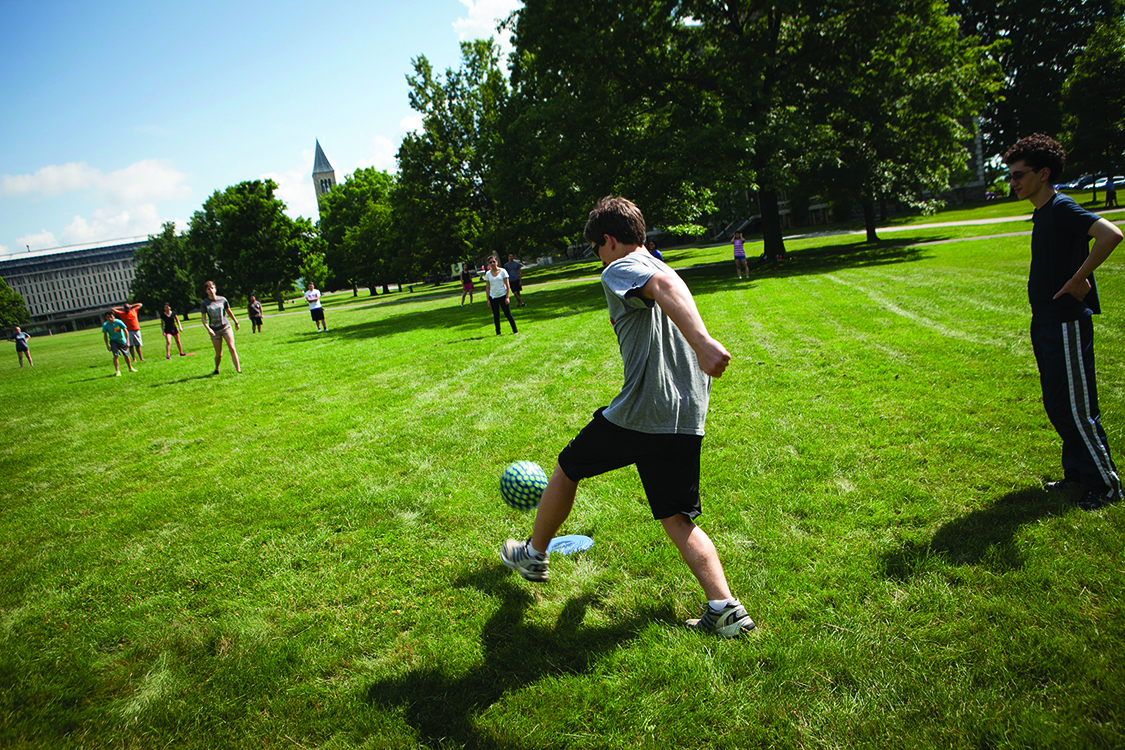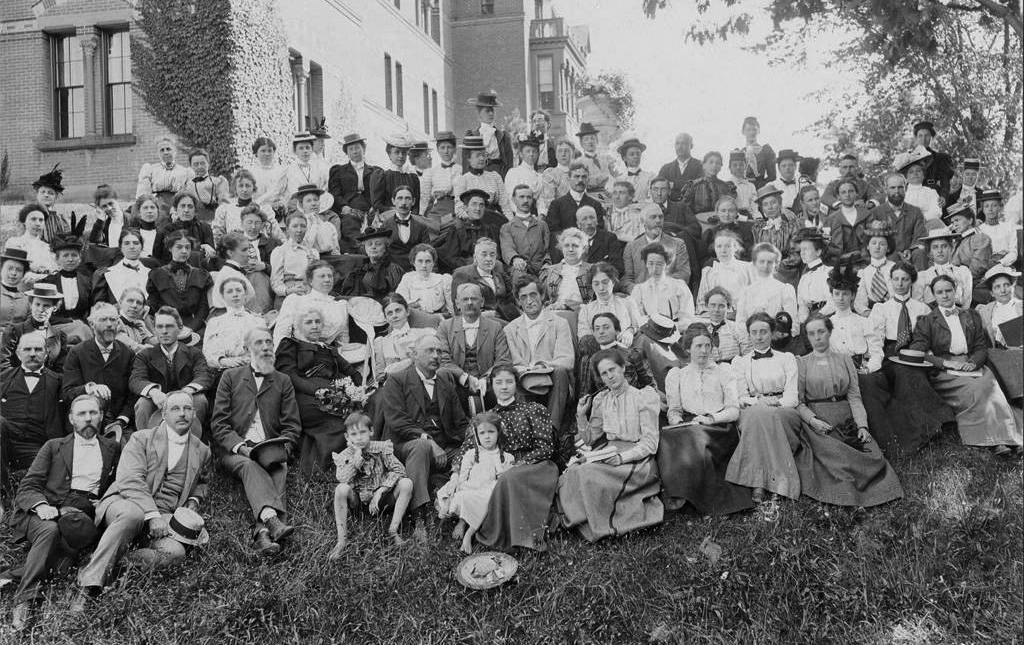Cornell Summer Session celebrates 125 years
By Daniel Aloi

Although summer courses had been offered at Cornell since 1876, this was the university’s first formal Summer Session. Beginning July 7, 1892, the courses offered in that session also included botany, drawing, entomology, English, French, German, Greek, Latin and physical training.
Now, 125 years later, Cornell offers more than 600 summer courses in nearly 80 disciplines, most in three-, six- or eight-week sessions. This summer, about 3,400 students will be enrolled in 580 for-credit classes and another 460 in 32 noncredit classes.
The School of Continuing Education and Summer Sessions will mark the 125th anniversary with a party on the Arts Quad for the Cornell and Ithaca communities. The free event, Friday, July 7, at 7 p.m., will feature cake and music by The Destination. The concert is part of a slate of free summer events on campus each year, with lectures, performances and outdoor concerts open to the public.
Summer education programs include Cornell Summer College, which brings more than 1,500 high school students to campus to study alongside Cornell undergraduates; the Administrative Management Institute, designed for administrators and business professionals; and Cornell’s Adult University (CAU), with weeklong programs in July for adults and children, taught by leading faculty.
CAU adult programs range from history and politics to art, music and sports. Youth programs include quantum physics for 13- to 15-year-olds and culture studies for 3- and 4-year-olds. Over the years, a number of Cornellians have made CAU a family vacation.

Summer programs and courses at Cornell “are now more diverse – and rich in content – than they have ever been,” said Glenn Altschuler, M.A. ’73, Ph.D. ’76, dean of the School of Continuing Education and Summer Sessions since 1991 and the Thomas and Dorothy Litwin Professor of American Studies at Cornell. “Our students … come from all walks of life, dozens and dozens of states in the United States, and many foreign countries. Virtually without exception, they are intellectually curious and motivated to learn about the world around them.”
There also are off-campus summer programs based in Washington, D.C., Madrid, Turin and elsewhere – including Imagining Rome (art and creative writing), global health in Tanzania, marine biology at Shoals Marine Laboratory, performing and media arts in Europe (three weeks each in Paris and Rome), and prelaw, pre-med and pre-professional experiential learning in New York City.
The largest class offered on campus, Introduction to Business Management, has 183 students registered, comprising undergraduates and high school students. (Three students who attended Cornell Summer College in 2015 went on to start a Generation Z consulting business that was featured on Bloomberg News.)
“In recent years, [the school] has been able to provide financial aid to make it possible for a large number of academically talented high school students from economically disadvantaged families to participate in our ‘bridge to college’ Summer College program,” Altschuler said.
Pioneering nature study

One of the early summer classes at Cornell was the Summer Nature Study School, created in 1897 by Liberty Hyde Bailey and Anna Botsford Comstock. The program focused on lectures, laboratory work and fieldwork in the areas of insect, plant and farm life.
“It is the purpose of the course to teach both the acts and the methods of serious Nature-study,” stated the Summer Session course description of 1898-99, “with particular reference to fitting teachers to take up the work in their own schools. The vicinity of Ithaca is rich in animal and plant life and in entertaining scenery.”
The course also played an important role in Cornell history. In 1899 Bailey, a champion of women’s education, supported Comstock’s appointment as an assistant professor of nature study in the summer school, making her the first woman to hold a professorial rank at Cornell. The trustees, however, opposed this appointment and by the end of the summer of 1899 had returned her to her previous rank of lecturer. Despite these setbacks, Comstock achieved full professorship in 1920. She continued to teach in the Summer Session until only nine days before her death in August 1930.
Ann Morse, director of communications and marketing, School of Continuing Education and Summer Sessions.
Media Contact
Get Cornell news delivered right to your inbox.
Subscribe